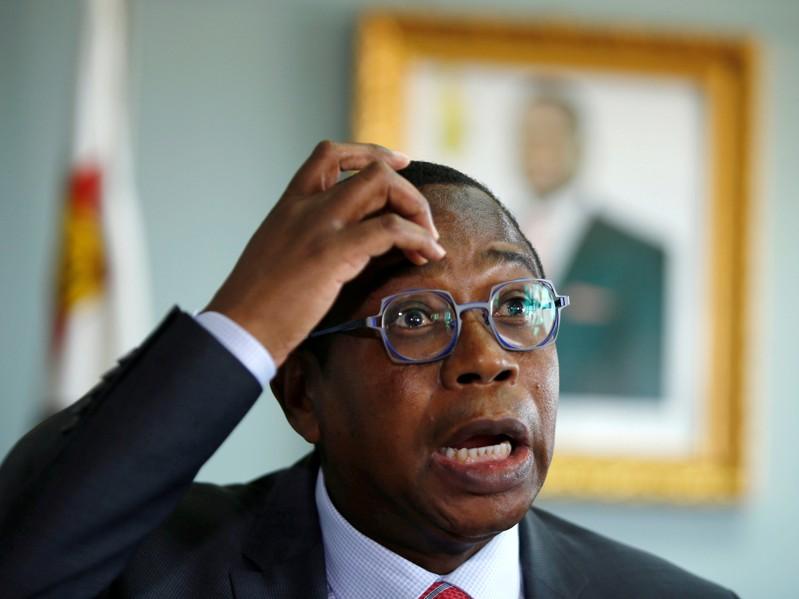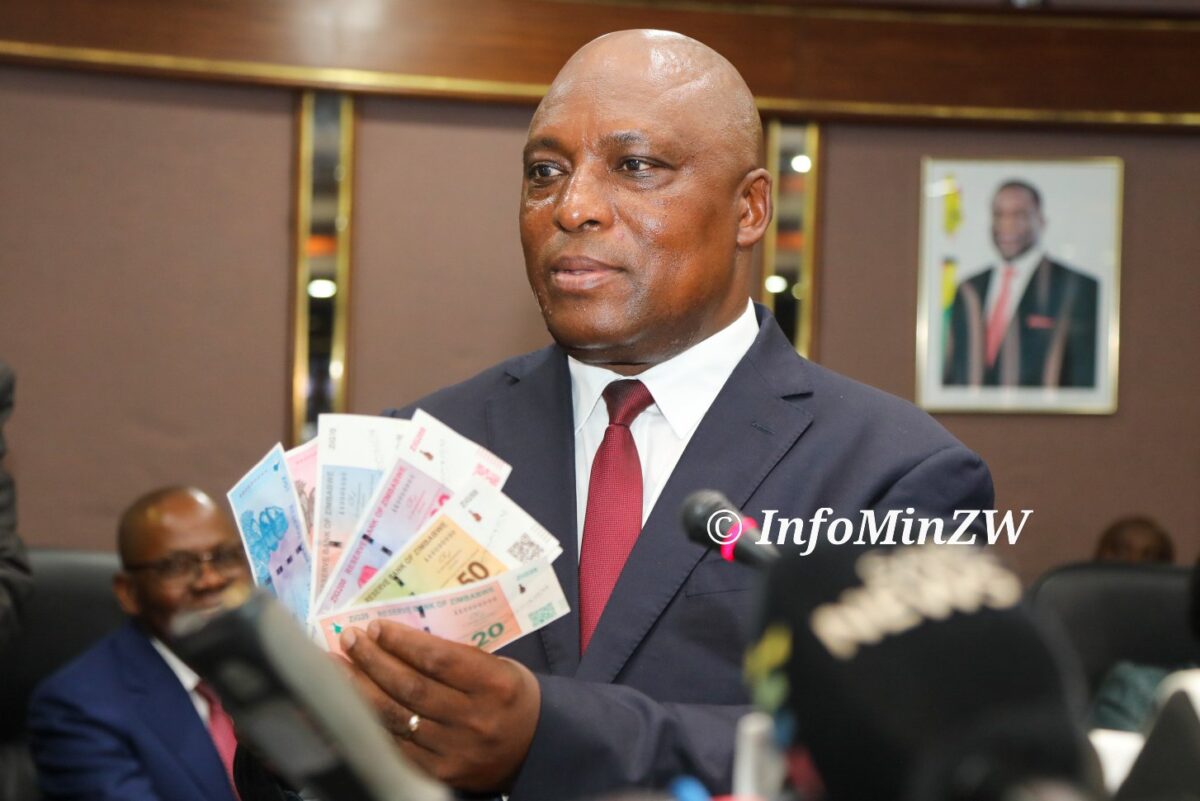HARARE – Finance Minister Mthuli Ncube acted unlawfully when he introduced a 2 percent tax on all electronic transactions in October last year without an enabling law, the High Court ruled on Wednesday.
The challenge to Statutory Instrument 205/2018 was brought by activist Mfundo Mlilo, who argued that Ncube had “usurped Parliament’s powers by pretending to amend a law and promulgating a fresh law…”
Justice Happious Zhou, who reserved judgment in February, found in favour of Mlilo.
Justice Zhou ruled: “In the result, it is ordered that (1) the decision made by the respondent which is contained in Clause 35 of the ‘Fiscal Measures for Reversing Disequilibrium’ which was presented on October 1, 2018, be and is hereby set aside.
“(2) The Finance (Rate and Incidence of Intermediated Monetary Transfer Tax) Regulations 2018 which are contained in Statutory Instrument 205 of 2018 are invalid and are hereby set aside.”
Ncube announced the tax in the regulations which became effective on October 13, 2018. Section 2 of the regulations stated: “With effect from the day after the promulgation of these regulations, Section 22(g) of the Finance Act (Chapter 23:04) is repealed…”
Justice Zhou said: “… the effect of the impugned regulations was to amend an Act of Parliament by repealing the existing rate of the Intermediated Money Transfer Tax of 5 cents per transaction and replacing it with 2 cents per dollar transacted. Repealing an Act is the prerogative of Parliament which… may not be delegated.”
Ncube moved to correct the anomaly through the Finance Bill that was rushed through parliament in December.
In a statement on Wednesday, the minister said: “The judgment will not affect the collection and levy of the Intermediated Money Transfer Tax because the collection of the tax under that statutory instrument 205/2018 was subsequently validated by Parliament under the Finance Act No. 1 of 2019. Consequently, the two percent tax will continue to be levied.”
Prominent lawyer Advocate Thabani Mpofu said: “What must concern Ncube is that he breached the constitution of the country and that he has been running the entire economy on the basis of an illegality.”
♦ Justice Zhou Judgement on Mthuli Ncube Tax
Tendai Biti, who represented Mlilo, said the battle is still on considering that the statutory instrument was not repealed, despite a finding that Ncube’s actions were illegal.
Ncube introduced the new tax in his Transitional Stabilisation Programme, sparking a public outcry and triggering a wave of price increases.
Mlilo argued that the minister’s decision was made without the necessary backing of the law, in particular the amendment of the Income Tax Act or the regulation of the tax in a Statutory Instrument.
“What the respondent (Ncube) seeks to do in the regulations, is to pretend that he is Parliament and, therefore, to amend an Act of Parliament. This, he cannot do. Parliament is the only legitimate law-making body in Zimbabwe in terms of Section 134 of the Constitution; such power cannot be delegated to any other person,” Mlilo argued.
In a debate in Parliament on December 20, Biti – who is also the MP for Harare East and a former finance minister – confronted Ncube over the illegality.
Here is what he had to say: “My submission is concerned around the manner in which the minister has introduced this tax. You recall that the minister first announced this tax in his maiden press statement on October 1, 2018. On Friday, October 12, 2018, he then passed a Statutory Instrument that introduced this tax.
“The problem with the Statutory Instrument is that it sought to amend a substantive provision of the Income Tax Act. The intermediated transaction tax is legislated; it has been in our law since 2002 where it was US$0.5 cents per transaction. So, Section 22(g) of the Income Tax Act provided that there will be a transaction tax of US$0.5 cents per transaction.
“What the minister did through a Statutory Instrument that he enacted on October 12, 2018, was to repeal and override a defined provision in an Act of Parliament.
“Section 134 of the Constitution is very clear. It says Parliament may in an Act of Parliament delegate power to make Statutory Instruments within the scope of and for the purposes laid out in that Act, but this is the qualification; a) Parliament’s primary lawmaking power must not be delegated.
“So, it is only Parliament which makes the laws. When the minister of Finance and Economic Development on October 12, 2018, made law by repealing Section 22(g) of the Income Tax Act Chapter 23:06, he breached Section 134 of the Constitution of Zimbabwe.”















